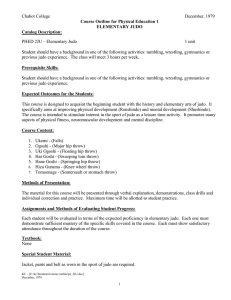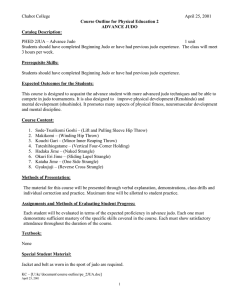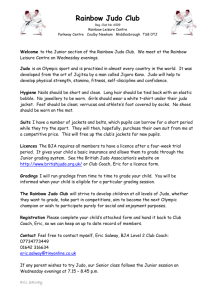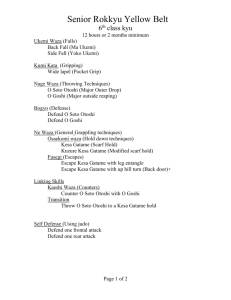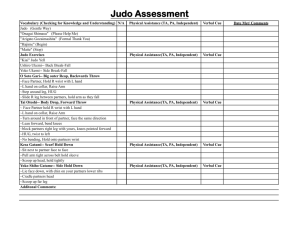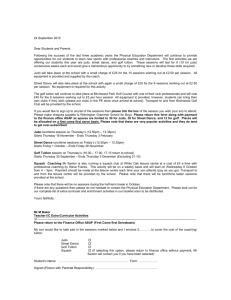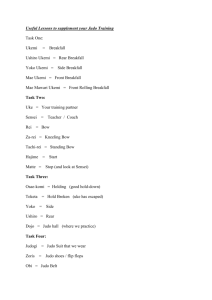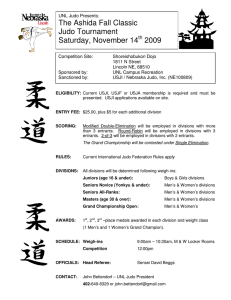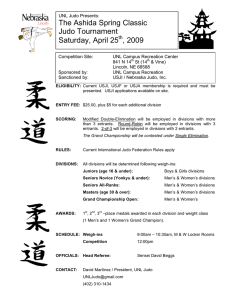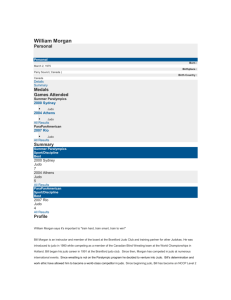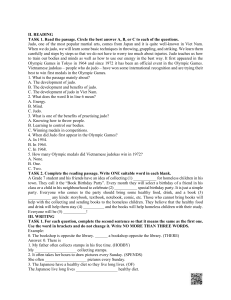6th Kyu (White Belt) - Bunasawa-Kai
advertisement
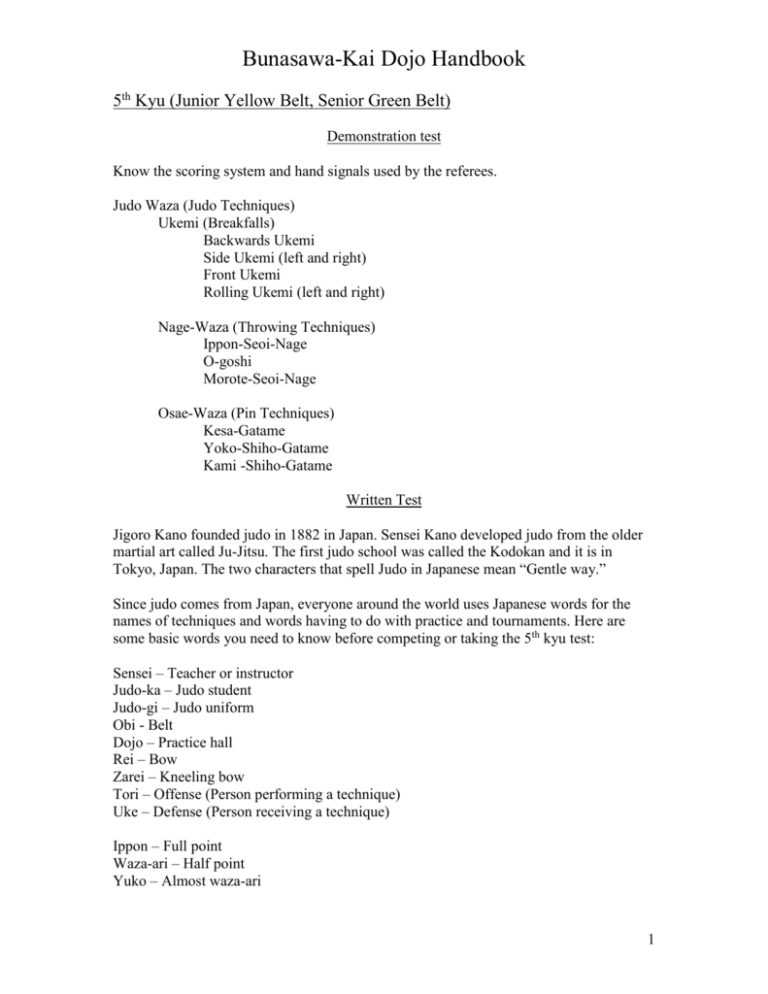
Bunasawa-Kai Dojo Handbook 5th Kyu (Junior Yellow Belt, Senior Green Belt) Demonstration test Know the scoring system and hand signals used by the referees. Judo Waza (Judo Techniques) Ukemi (Breakfalls) Backwards Ukemi Side Ukemi (left and right) Front Ukemi Rolling Ukemi (left and right) Nage-Waza (Throwing Techniques) Ippon-Seoi-Nage O-goshi Morote-Seoi-Nage Osae-Waza (Pin Techniques) Kesa-Gatame Yoko-Shiho-Gatame Kami -Shiho-Gatame Written Test Jigoro Kano founded judo in 1882 in Japan. Sensei Kano developed judo from the older martial art called Ju-Jitsu. The first judo school was called the Kodokan and it is in Tokyo, Japan. The two characters that spell Judo in Japanese mean “Gentle way.” Since judo comes from Japan, everyone around the world uses Japanese words for the names of techniques and words having to do with practice and tournaments. Here are some basic words you need to know before competing or taking the 5th kyu test: Sensei – Teacher or instructor Judo-ka – Judo student Judo-gi – Judo uniform Obi - Belt Dojo – Practice hall Rei – Bow Zarei – Kneeling bow Tori – Offense (Person performing a technique) Uke – Defense (Person receiving a technique) Ippon – Full point Waza-ari – Half point Yuko – Almost waza-ari 1 Bunasawa-Kai Dojo Handbook Koka – Almost yuko Shido – Slight penalty equal to koka Hansoku-make – Heavy penalty equal to ippon (Disqualified) Shizentai – Natural standing posture Suriashi – Sliding movement of the feet Kuzushi – Off balancing Hajime – Start! Matte – Stop the action! (Stop what you’re doing and return to your starting position.) Sonomama – Freeze! (Don't move. Hold your position until yoshi is called.) Yoshi - Restart (Restart action after sonomama) Osaekomi – Pin (Begin timing pin) Toketa – Pin is broken (Stop timing pin) Soremade – Match is over Kiai – Spiritual expression Kiotsuke! – Attention! Mokuso – Meditation Seiza – Formal sitting posture (kneeling) Anza – Informal sitting posture (cross-legged) Ukemi – Breakfall 2
